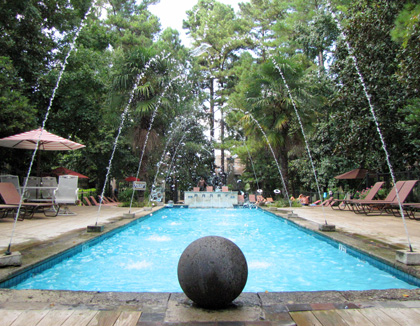In the last decade Sydney residents have been called on to conserve water. Water restrictions meant homeowners not just became aware of their water usage but also became conscious of ways to reduce their consumption. In an era of water restrictions, I can say with some confidence, as the local plumber, Manly locals have excelled at saving water.
Here are some of my top tips to conserve even more.
Saving Water in the Home
Drips and Leaks:
The first and most obvious place to start is with leaks and dripping taps.
A dripping tap doesn’t seem like much but it may amount to 2000 litres a month of water down the drain. It is important to check that taps are properly closed. Beware of using too much force, however, as that can damage washers and cause drips.
When the washer is damaged taps won’t close properly. Changing a washer is a fairly simple exercise. The JEDI Plumbing team can offer advice on the most effective and efficient washers for your taps, especially if changing washers has become an all-too-frequent occurrence. Not all washers are created equal and there are new developments and better choices for different tap types.
It may also be a case that the tap needs reseating.
Checking for leaking pipes is a straightforward exercise. Take an initial meter reading before closing all taps, turning off any appliances that use water – like the dishwasher or washing machine – and then take a second reading after a short period of time. If there is a change in the reading it is possible that you have a leaking pipe.
If you aren’t sure about how to change washers, or check for leaky pipes, we can help.
Efficient Appliances:
The new water efficiency rating scheme (WELS) is a compulsory rating, rather than the voluntary scheme that the old appliance efficiency rating was. It provides two pieces of information
1. Water efficiency stars
2. Flow figures.
It doesn’t matter whether you are getting a new dishwasher, toilet, tap, shower head or washing machine, the highest efficiency rating can save water and therefore money.
Water Wise Fittings:
It is a sound investment, particularly if renovating kitchens, or bathrooms, to install water efficient, or low flow, taps, toilets and shower heads.
Good Home Water Habits
Indoors:
There are many good water habits we can consciously choose around the home, that will save a significant amount of water.
Whether you are in the kitchen, bathroom, or laundry simply turn off taps except when actually using water. For example
* When cleaning teeth, turn off the tap while brushing
* When shaving use water in the sink rather than running water
* When washing vegetables simply use a half filled sink
* Thaw food in the microwave rather than under running water
* In the kitchen and laundry ensure you do full loads in the dishwasher or washing machine rather than several smaller loads. Use the environmental, or economy mode when running to further save on water usage.
Some simple measures in the bathroom can help too. Reducing shower times, using half flushes, and installing displacement devices in cisterns can save several thousand litres of water a year.
Outdoors:
As with the tips for saving water inside the home, the tips for outside are common sense measures that only require us to think about how we do things.
To reduce garden watering, use compost, mulch and soil wetting agents, or water retaining products.
Consider garden plantings so that native, water wise plants are used and plants are grouped in terms water needs. Always water early in the morning or late in the evening to reduce water loss through evaporation.
Backyard pools can be a source of water wastage for homeowners. The correct water levels, being sure not to overfill, and a cover are important for efficiency and reducing water loss. Without a cover evaporation can account for at least half the volume of water in your pool being lost to the atmosphere.
There are a few really simple steps that can reduce water wastage such as:
* Washing cars on lawns rather than in the driveway because it can have the effect of watering and fertilising your lawn
* Use brooms and rakes to clear pathways rather than hosing them down
* Check for leaking or dripping taps outside the home not just indoors.
Saving water on Sydney’s northern beaches needn’t be a challenge for homeowners. There are a number of simple strategies and changes to habits that can make a huge difference to water usage and water bills.
The most significant factor in saving water is ensuring your plumbing is working efficiently and not creating waste through leaks. That is where expert advice can be beneficial, just call your local plumber. Manly has already generated a great record of water saving and a regular property inspection to identify and fix leaks, or install water saving devices can only help the peninsula grow its environmental credentials.


